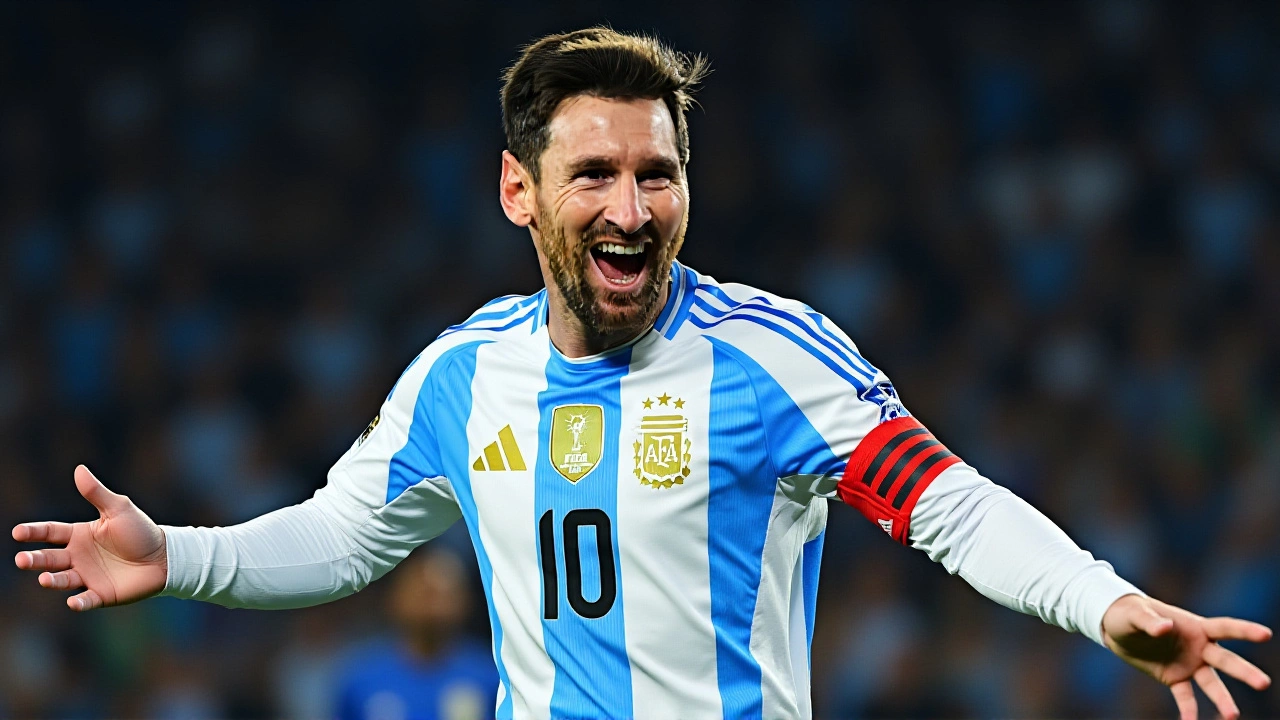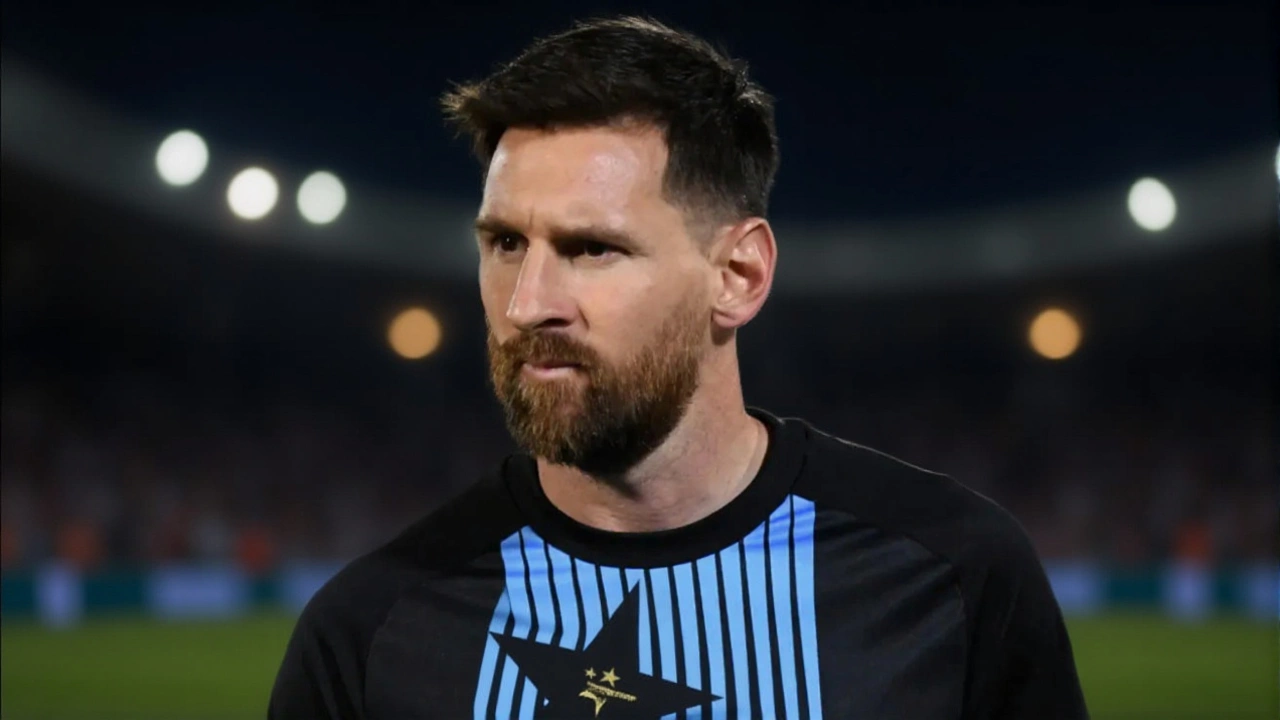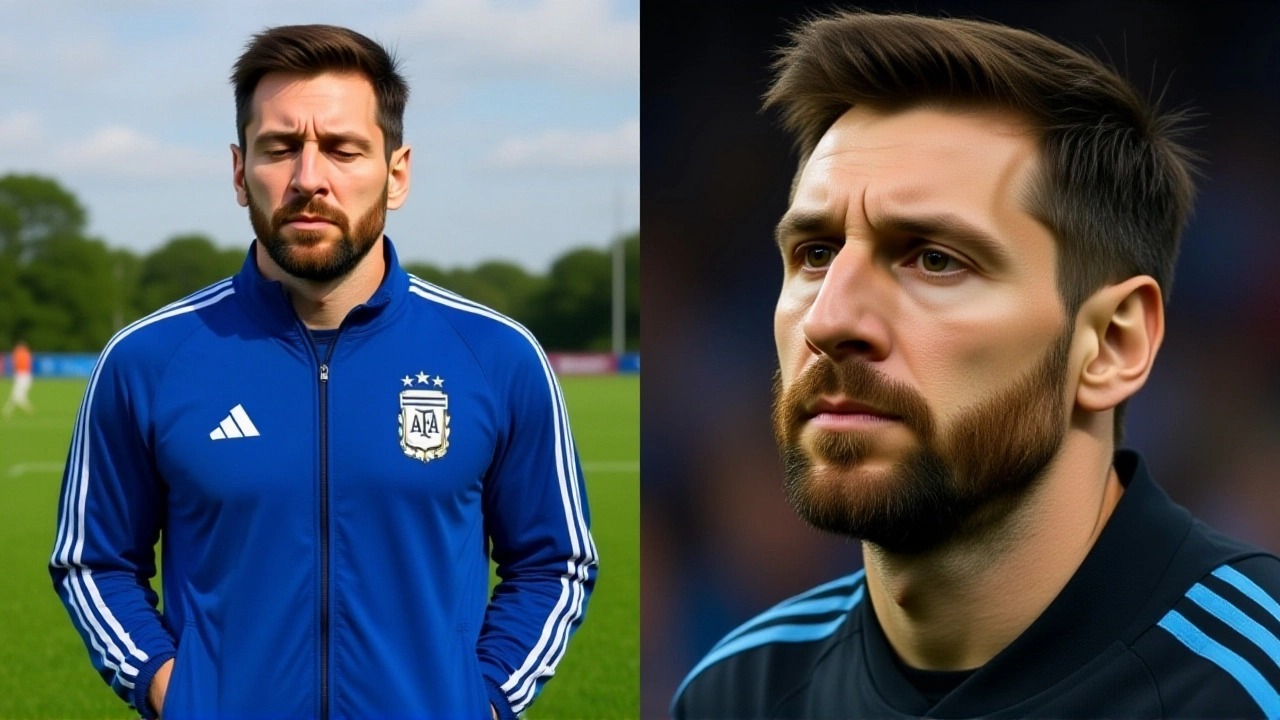When Lionel Andrés Messi, captain of Argentina national football team stepped onto the grass at Estadio Monumental on September 5, 2024, the air was thick with chants of “Messi, Messi” and tears glimmered in the floodlights. The match – a 2026 FIFA World Cup qualifier against the Venezuela national football team – turned into a farewell party, a celebration of a career that has defined a generation.
A night to remember at El Monumental
The iconic stadium in Buenos Aires’ Belgrano district, owned by Club Atlético River Plate, holds 70,074 seats, but on that night it felt like every Argentine heart was in the stands. Fans waved banners reading “Thank you Leo” and “Legend,” while the Argentine press ran with headlines that called the evening “the most emotional home appearance in modern football.” Even before the whistle, Messi was visibly shaken – he paused during warm‑ups, eyes misty, as the crowd swelled into a standing ovation.
How the match unfolded
Argentina dominated from the first minute, but the real magic arrived in the 39th minute. A slick move started by Leandro Rodolfo Paredes threaded a ball to Julián Álvarez, who cut inside and slipped the ball to Messi. The Argentine legend lifted a delicate chip over Venezuelan keeper Rafael Romo, the first of two goals that night.
Six minutes later, Thiago Almada – a former Atlanta United star now plying his trade at Inter Miami CF – found Messi in space. A first‑time strike curled into the net to make it 2‑0. A third goal, courtesy of Lautaro Martínez, sealed a 3‑0 win and gave Messi a perfect statistical send‑off: two goals, two assists, and a record‑breaking 36th qualifier tally – the most ever in South American World Cup qualifying.
Reactions from teammates and coach
Coach Lionel Sebastián Scaloni praised the "fleet of small forwards" system that has been built around Messi’s movement. “We designed the gameplan to let Leo find the spaces he loves,” Scaloni said in the post‑match press conference. Julián Álvarez, now a key figure at Atlético Madrid, recalled asking a 12‑year‑old Messi for a selfie years before the match. "I never imagined I’d be the one setting up his goal here," he said, eyes shining.
Even rival players were gracious. Venezuela’s captain, Yangel Herrera, lifted Messi’s arm after the final whistle, saying, "It’s an honor to play against a legend on his night." The sentiment echoed across social media, where former Barcelona teammate Xavi Hernández posted, “Gracias, Leo – you’ve given us memories for life.”

What Messi’s words mean for the 2026 World Cup
When asked about the upcoming tournament – co‑hosted by the United States, Mexico and Canada – Messi’s answer was intentionally vague: “We’ll see how I feel after the MLS season and preseason.” He added, “I’m hoping for a good preseason and to finish the season well.” The 38‑year‑old also confirmed he will sit out the final qualifier against Ecuador on September 9, 2024, effectively ending his home‑soil appearances.
Analysts are splitting on the implications. Former England striker Gary Lineker warned that “Argentina needs to plan for the possibility that Leo might sit out, but his presence in the locker room is priceless.” In contrast, Argentine football historian Gabriel García argued, “Even if he skips 2026, Messi’s legacy will already have secured three World Cups for the nation – two finals, one trophy.” The uncertainty adds a fresh layer of drama to a qualification campaign that was already secured in March 2024.
Historical context and legacy
Messi’s journey with La Albiceleste began in 2005, debuting at 18. Over 19 years he amassed 114 international goals, becoming both the all‑time top scorer and the most‑capped Argentine player. His record in South American qualifiers – 36 goals – eclipses Uruguay’s Luis Suárez (29) and Bolivia’s Marcelo Moreno (22). The 2022 triumph in Qatar, where he lifted the trophy alongside Rodrigo De Paul, cemented his place among the pantheon of football greats.
Beyond numbers, Messi’s emotional farewell highlighted how deeply he is woven into the nation’s identity. The stadium’s roar, the banners, the tears – they mirrored a country that has lived its highs and lows through his boots. As the world watches whether he will lace up for 2026, the conversation is shifting from “Will he play?” to “What will his last chapter look like?”

Key facts
- Date of farewell match: September 5, 2024
- Venue: Estadio Monumental, Buenos Aires
- Result: Argentina 3‑0 Venezuela
- Messi’s goals: 39th and 80th minutes
- World Cup qualifier status: Argentina already qualified (March 2024)
Frequently Asked Questions
How does Messi’s possible absence affect Argentina’s 2026 World Cup plans?
If Messi sits out, Argentina will likely rely on the next‑generation forwards – Julián Álvarez, Lautaro Martínez and Lautaro Martínez – to fill the creative void. Coach Scaloni has already experimented with a "small forwards" system, which could mitigate the loss, but the psychological boost of Messi’s presence will be missed.
Why was the match against Venezuela considered Messi’s final home game?
Argentina secured World Cup qualification in March 2024, making any subsequent home qualifier a formality. Messi announced beforehand that he would not travel to Ecuador for the final qualifier, effectively ending his competitive appearances on Argentine soil.
What milestones did Messi achieve during this match?
He became the all‑time leading scorer in South American World Cup qualifiers with his 36th goal, and he scored his 114th international goal overall, cementing his status as Argentina’s greatest scorer.
When will Messi decide on his World Cup future?
Messi indicated he will evaluate his condition after the MLS season ends in late 2024 and after a preseason training block, likely making a final decision by early 2025.
How did fans react to Messi’s emotional performance?
Fans created a sea of banners, sang his name for the entire match, and gave a prolonged standing ovation. Many were seen with tears, and social media trended #MessiFarewell across Latin America.
